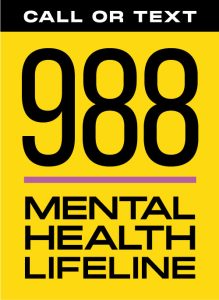Oklahoma Bar Journal
Raising the Bar: Addressing Attorney Suicide in Oklahoma
By Durand Crosby and Christina L. Green
 September marks National Suicide Prevention Month. This month, the Oklahoma Department of Mental Health and Substance Abuse Services is raising awareness about the critical issue of suicide and promoting preventative mental health and wellness. In Oklahoma, 1 in 5 residents experiences mental health issues, so it's essential to address an extremely vulnerable group that often struggles in silence: attorneys.
September marks National Suicide Prevention Month. This month, the Oklahoma Department of Mental Health and Substance Abuse Services is raising awareness about the critical issue of suicide and promoting preventative mental health and wellness. In Oklahoma, 1 in 5 residents experiences mental health issues, so it's essential to address an extremely vulnerable group that often struggles in silence: attorneys.
The legal profession is known for its demands, complexities and high-stakes environments. Attorneys navigate a labyrinth of legal demands, representing clients' interests while shouldering immense responsibilities that are connected to those cases. This profession, however rewarding, is marked by long hours, strenuous workloads and frequent periods away from family and loved ones.
These and other challenges have far-reaching consequences on attorneys' mental health. The Dave Nee Foundation in New York, dedicated to studying lawyer depression, reveals a grim reality. In 2021, lawyers are ranked fifth in terms of occupational suicide rates, and they are the most frequently depressed occupational group in the United States. Shockingly, lawyers are 3.6 times more likely to suffer from depression than non-lawyers. The mental toll is evident as approximately 26% of lawyers seeking counseling admit to struggling with anxiety and depression.
In light of these statistics, it's crucial to recognize the significance of initiatives like National Suicide Prevention Month. The legal community in Oklahoma needs more than ever to prioritize mental health awareness, support and advocacy. At ODMHSAS, the focus is spreading hope and educating others that 24/7, 365 they can call or text the 988 Mental Health Lifeline.
988, which will serve as a dedicated crisis line, is designed to provide easier access to mental health resources. Just like you know 988, your loved ones should know 988. Privacy is protected, and those reaching out to 988 can rest assured that their personal information is only voluntarily provided. Your conversations are protected, and confidential.
988 launched in July 2022, and received nearly 40,000 calls and 10,000 texts in its first year of operations. We expect that number to only grow. A vast majority of callers receive help with a single call. If we need to provide more support, ODMHSAS connects callers to medical providers in their area, or with their consent, send a mobile crisis team to them. For those experiencing severe crises, additional care in one of our urgent care centers can often help.
The significance of 988 extends far beyond the legal field – it's a lifeline for all Oklahomans, of all ages. This service offers support for a wide array of challenges, from depression, anxiety and substance abuse to domestic violence, relationship issues and thoughts of self-harm. The 988 provides accessible, judgment-free assistance to anyone struggling with their mental health.
Recognizing the signs of someone in crisis is imperative, and the legal community can play a pivotal role in identifying those at risk. Some of these warning signs include talking about suicide, researching methods of ending one's life, expressing feelings of hopelessness or being a burden or exhibiting extreme mood swings.
If you are worried about a colleague, friend or family member, remember that 988 is there to help. Reach out through a call or text, and you'll be connected with a trained mental health professional in about 10 seconds. They will guide you toward the appropriate resources in your area and offer advice on how to provide support safely if you are calling for someone else.
This National Suicide Prevention Month, let us continue the conversation around mental health in the legal profession, but more broadly, Oklahoma. Let us stand together and provide a lifeline of hope for those who need it most. The legal community in Oklahoma has an opportunity to lead by example, fostering a culture of empathy, support, and understanding that not only helps attorneys but enriches the fabric of our society as a whole.
Find out more by visiting 988oklahoma.com.
ABOUT THE AUTHORS
Durand Crosby is the Chief of Staff and Operations for Oklahoma Department of Mental Health and Substance Abuse Services.
Christina L. Green serves as Assistant General Counsel for Oklahoma Department of Mental Health and Substance Abuse Services.
Note: This article was originally published in September 2023.
Statements or opinions expressed in the Oklahoma Bar Journal are those of the authors and do not necessarily reflect those of the Oklahoma Bar Association, its officers, Board of Governors, Board of Editors or staff.
